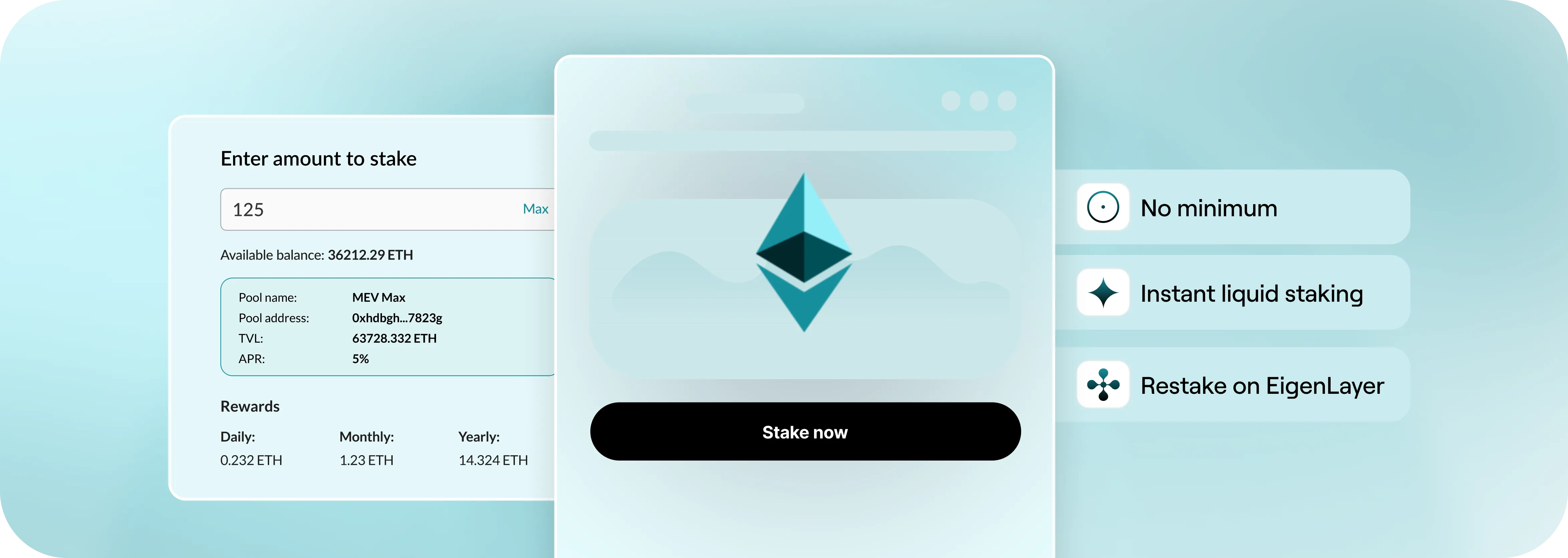Stake ETH like a pro

Why should you stake ETH with Chorus One?

Competitive fees
Low fees, high rewards – our 5% commissions are among the market's lowest.
Leading Rewards
Our inhouse team of researchers work to optimise reward performance.
More than 350K ETH staked
Thousands of delegators trust Chorus One with their ETH.
Enterprise-grade infrastructure
Security is our top priority. With robust infrastructure and industry-leading practices, we've never faced slashing.
Create Private Vaults
Create private ETH staking vaults for your organization or for your customers. Customize it fully and keep your funds separate.












Trusted by the biggest institutions

Frequently Asked Questions

ETH Staking Vault Pool is Chorus One's latest offering that allows users to stake any amount of ETH, mint osETH, and deposit into EigenLayer all in one go, without the previous 32 ETH minimum threshold.
ETH Staking Vault is the most comprehensive ETH staking solution for institutions and investors. Benefits include the ability to stake any amount of ETH, low fees of just 5%, top-tier MEV yields through the Adagio MEV-Boost client, and the option to restake osETH, stETH, cbETH, and rETH with EigenLayer in one interface.
Liquid staking allows users to stake their crypto and receive a token in return, which can be freely traded or used within the DeFi ecosystem, providing liquidity and opportunities to compound rewards, unlike traditional staking which locks up assets.
Yes, institutional clients can leverage the ETH Staking Vault SDK to integrate ETH staking into their offerings for their customers.
Restaking is a process that allows staked assets to be used beyond the Ethereum network, contributing to the security of multiple networks. EigenLayer facilitates restaking through smart contracts on Ethereum, allowing users to extend their staked ETH's security to additional applications.
You can stake ETH by going to the ETH Staking Vault Pool page, connecting your wallet, depositing ETH, minting osETH, and then depositing the osETH into EigenLayer, all in a few simple steps.
Yes, you can deposit accepted liquid staking derivatives such as stETH, cbETH, and rETH into EigenLayer through the ETH Staking Vault Pool.
The ETH Staking Vault Pool offers highly competitive staking fees at just 5%.
Chorus One has been involved in MEV research on multiple networks for a long time and we published our research on Adagio, our modified MEV-boost client on Ethereum, in a research paper here. We also published this research on EthResearch and wrote a shorter summary in our blog. Our expertise on MEV is not just limited to Ethereum. We were also commissioned a grant by the dYdX Foundation to publish a detailed report about MEV on dYdX v4. You can read the report here.
Institutions interested in the ETH Staking Vault SDK can contact the Chorus One team at staking@chorus.one.








